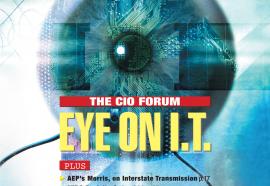The Key to California's Coal Future
Don’t overlook high-quality, project-based emissions reductions.
By Mike Burnett and Bjorn Fischer
Mike Burnett is executive director of the Climate Trust. Bjorn Fischer is business development manager at the Climate Trust. Contact Fischer at bfischer@climatetrust.org. The Climate Trust is a non-profit committed to providing high quality, project-based reductions and advancing the policies that support them. Its offices are located in Portland, Ore.






